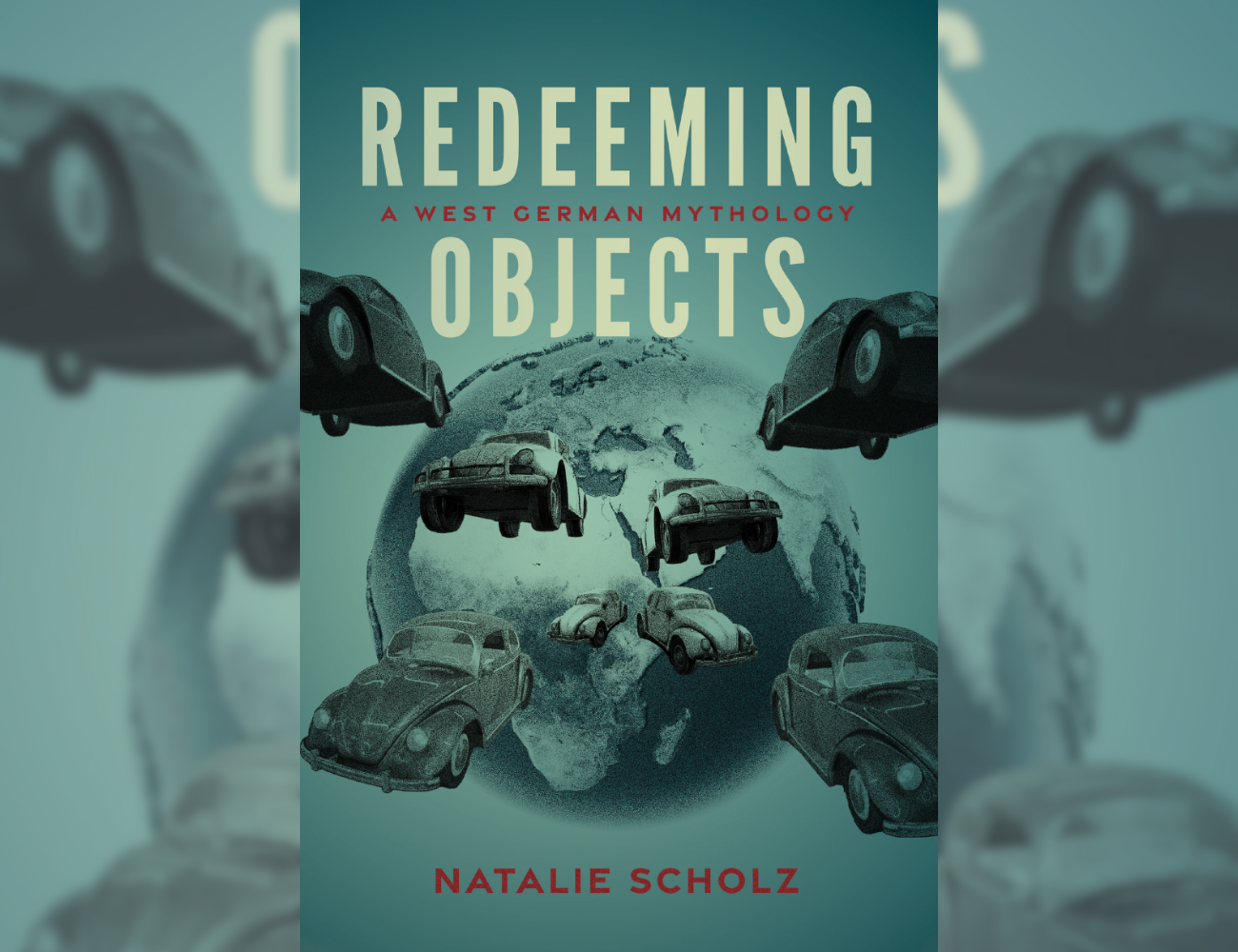Boekpresentatie | Redeeming Objects
A West German Mythology
| Veranstaltung des Duitsland Instituut Amsterdam |
|
|---|---|
| Datum: | Donnerstag 7 März 2024 um 17:00 Uhr |
| Ort: | SPUI25, Spui 25-27, Amsterdam / Online |
| Information: | Aanmelden op de website van SPUI25 |
| Zugang: | Gratis; aanmelden verplicht |
Uit de puinhopen van de Tweede Wereldoorlog en de Holocaust ontstond de Bondsrepubliek Duitsland en daarmee de mythe van het Wirtschaftswunder. In haar nieuwe boek Redeeming Objects. A West German Mythology laat Natalie Scholz zien hoe deze mythe zijn verlossende kwaliteiten ontleende aan de verstrengeling met de nazi-cultuur. In SPUI25 (Amsterdam) spreekt zij hierover met Marieke Bloembergen, Carolyn Birdsall en Till van Rahden. Moderatie: Mario Daniels (DIA)
Out of the rubble of World War II and the Holocaust, the Federal Republic of Germany emerged, and with it a foundational myth of the “economic miracle.” In her new book Redeeming Objects. A West German Mythology, Natalie Scholz (Amsterdam) shows how this mythical foundation derived its redemptive qualities from being entangled with Nazi culture. Scholz will discuss the different dimensions of her book with Marieke Bloembergen (KITLV, Leiden), Carolyn Birdsall (Amsterdam) and Till van Rahden (Montréal). Mario Daniels (DIA) will moderate the event.
Redeeming Objects traces the afterlives of things. In the narrative of the “economic miracle”, a new mass consumer society based on the production, export, and consumption of goods would redeem West Germany from its Nazi past and drive its rebirth as a truly Western nation. Turning this narrative on its head, Natalie Scholz’s new book exposes how West Germany’s consumerist ideology took shape through the reinvention of commodities previously tied to Nazism into symbols of Germany’s postwar modernity, economic supremacy, and international prestige.
Postwar advertising, film, and print culture sought to divest mass-produced goods – such as the Volkswagen and modern interiors – of their fascist legacies. But Scholz demonstrates that these same representations were saturated with unacknowledged references to the Nazi past and older German colonial fantasies. The book studies how the myth of redeeming objects emerged in time by systematically crossing the 1945 threshold to the Nazi era and beyond. This endeavor is informed by an awareness that the postwar culture studies had long term consequences and also influenced the author’s own thinking. Drawing on a vast array of popular and highbrow publications and films, Redeeming Objects adds a new perspective to debates about postwar reconstruction, memory, and consumerism.

